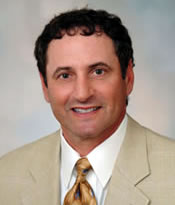Transactions between retail agents and brokers they place business through just became more labor intensive. I recently testified as an expert in a federal case involving a reputable agency's failure to conduct proper due diligence on a purported surplus lines broker before "placing" umbrella coverage on behalf of several major trucking firms through that surplus lines broker. It appears that the standard of care required of agents when entering into a brokerage arrangement demands a level of due diligence on the part of each party that very few agencies currently meet.
The "surplus lines" broker, based in New York, contacted several reputable agencies to help it market a long-haul trucker's umbrella coverage purportedly underwritten by Lloyds. These agencies collected millions of dollars in premium from their trucking clients in return for binders issued by the New York broker showing coverage in force through "Underwriters at Lloyds." The premiums were forwarded to the New York broker who never intended to place the coverage. The premiums were stolen by the broker and several major claims filed by the victimized trucking firms were not covered. The resulting damages incurred by these trucking firms may very well exceed the agencies' errors and omissions coverage limits.
Due diligence inadequate
The reason these reputable firms were duped by the New York broker is because the standard of care the average retail agent applies to conducting due diligence on co-brokers is inadequate.
Prior to binding its first policy through the New York broker, the retail agent in the case obtained a copy of the purported coverage form, a copy of the broker's E&O coverage certificate, a Dunn & Bradstreet report on the broker, and reviewed the broker's Web site and promotional materials, all of which seemed in order. The Dunn & Bradstreet report confirmed that the broker had been in the insurance business since 1987, had offices at the location that appeared on their letterhead and the credit score was in the normal range. The kicker was that they were referred to the broker by a "satisfied" customer.
The New York broker knew that retail agents were generally unsophisticated in conducting due diligence, so they knew that it would be highly unlikely that certain inquiries would be made that would expose their fraudulent scheme. As it turned out, the New York broker had a general lines agent's license, but did not hold a surplus lines license in any state. A mere request for a copy of the surplus lines license would have uncovered this serious defect. Although the retail agency ran a cursory Internet check on the broker, a Lexis search for litigation history would have turned up several lawsuits involving irregularities in handling customers' premiums.
More diligence necessary
After this case, agents are now on notice that they must be more diligent in conducting background checks on brokers they engage on behalf of their clients. Prior to placing the first policy with a new broker:
- An agency should have a written statement as to who is responsible for conducting due diligence on other brokers prior to entering into a business relationship with them.
- The agency should generally work with well-established, reputable brokers.
- Other agents who have placed coverage through the broker would be a better source of referral than a satisfied customer.
- A copy of all relevant licenses should be obtained in the states where coverage is placed. An agent-broker agreement should be signed and in effect. The agreement should detail who is responsible for complying with the applicable surplus lines act(s).
- A Lexis litigation search should be conducted on the broker entity and on the principals.
- A copy of the coverage form should be obtained and reviewed for its adequacy.
- A copy of the broker's binding agreement with the company underwriting the coverage should be obtained to confirm the broker's binding authority.
- A credit report should be obtained.
- A copy of the E&O coverage certificate should be obtained.
- A visit to the offices of the brokerage should be made. Much can be learned by seeing people in a work environment that cannot be learned on paper.
We normally think of insurance fraud in the context of fraudulent claims or in the context of companies failing to pay what the customer is contractually entitled to. Fraud amongst peers in the agency business is now on the radar screen.
Michael Sapourn, JD, CIC, CRM, ACA,has been qualified as an Expert in State and Federal Court in the areas of Property and Casualty Insurance Coverage and in Agency Management and Operations.
©Copyright - All Rights Reserved
DO NOT REPRODUCE WITHOUT WRITTEN PERMISSION BY AUTHOR.










